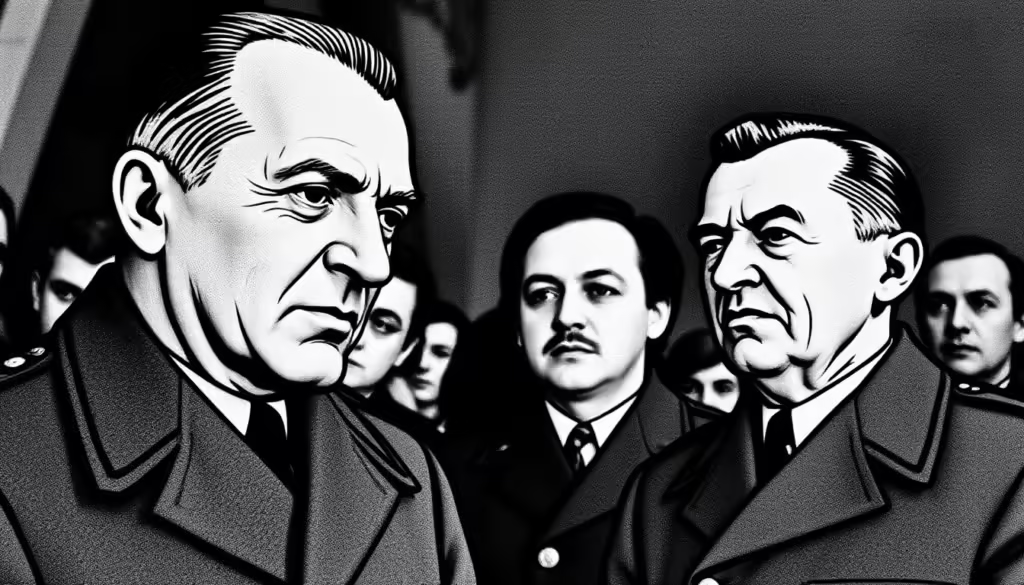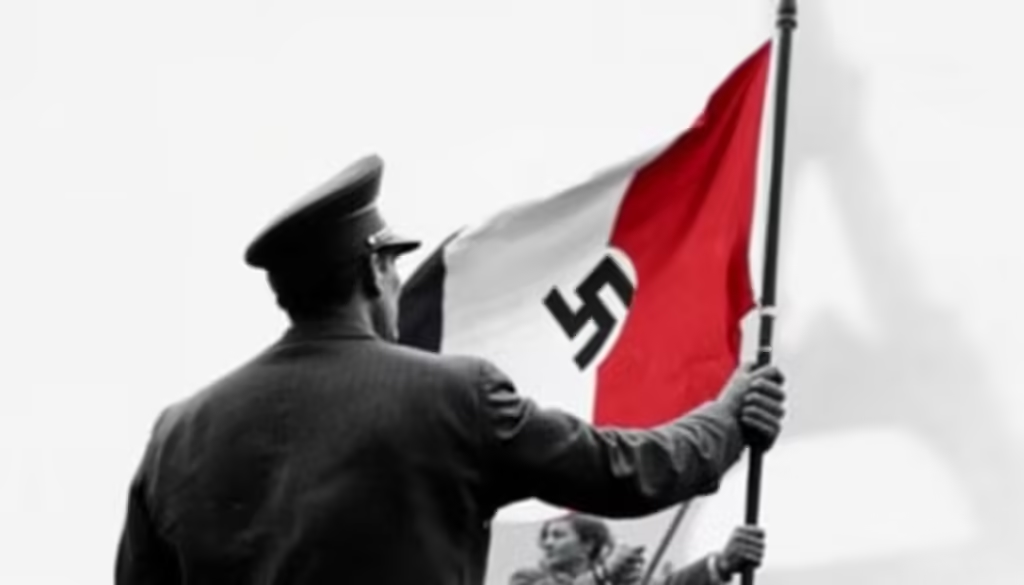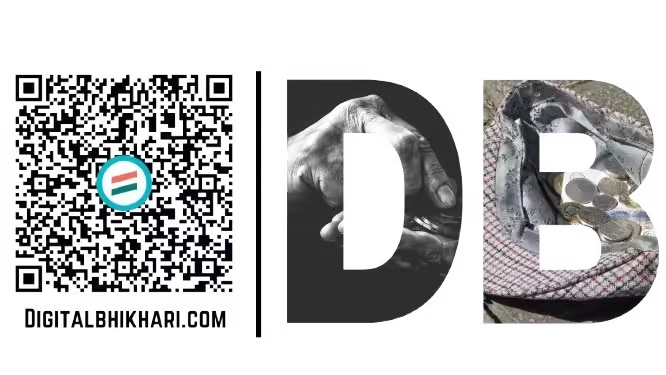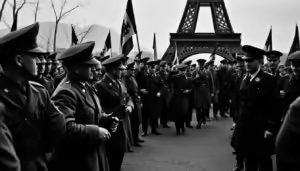How France Embraced the Nazis, Resistance, and Then Found Redemption : Paris 1944 – Review

Paris 1944: How France Embraced the Nazis, Resistance, and Then Found Redemption :- The liberation of Paris in 1944 remains one of the most significant events of World War II. While much of the narrative surrounding the war focuses on the heroism of the French Resistance and the eventual triumph of Allied forces, the reality of France’s relationship with the Nazi occupation is far more complex. The story of Paris in 1944 reveals a nation that, in many ways, embraced the Nazi regime before it mounted a fierce resistance. In this article, we will delve into the historical context of France’s political, social, and military dynamics during the Nazi occupation, the role of the French Resistance, and the eventual liberation. Additionally, we’ll discuss how post-liberation France reconciled with its past and shaped its identity after the war.
Historical Context: The Fall of France and Nazi Occupation
In 1940, France suffered a swift and humiliating defeat at the hands of Nazi Germany. The Blitzkrieg, or “lightning war,” overwhelmed French defenses, and within six weeks, Paris fell under German control. The rapid fall of France shocked the world, and with the signing of the armistice on June 22, 1940, Nazi occupation of Paris began.
The German military established a puppet government in Vichy, led by Marshal Philippe Pétain, a former World War I hero. Vichy France collaborated openly with Nazi Germany, enforcing anti-Semitic laws, deporting Jews, and aiding the Nazis in suppressing opposition. Though the Vichy regime maintained control over southern France, the northern half, including Paris, was under direct German military administration.

This period marked a dark chapter in French history, as many French citizens, driven by fear, economic necessity, or ideological alignment, accepted or even supported the Nazi occupation. French businesses continued to operate, cultural institutions thrived, and daily life for many Parisians continued with relative normalcy. However, beneath the surface, resistance movements were growing, setting the stage for the events of 1944.
Embracing the Nazis: Collaboration vs. Survival
The narrative of Paris under Nazi occupation is often told through the lens of collaboration and survival. The Vichy government, along with large sections of French society, openly collaborated with the Nazis, often justifying their actions as a pragmatic response to the realities of occupation. Many businesses profited from German contracts, and French industries supported the Nazi war machine by supplying goods and materials.
French police forces cooperated with the Nazis in rounding up Jews and other “undesirables,” contributing to the deportation of over 75,000 Jews from France to concentration camps. In Paris, infamous roundups like the Vel d’Hiv in 1942 saw French police arrest over 13,000 Jews, including women and children, in a single day. These actions were done in full cooperation with the Nazi regime, highlighting the depth of collaboration in French society.
However, collaboration was not always born from ideological alignment with the Nazis. For many Parisians, it was a matter of survival. Food shortages, rationing, and the constant threat of violence pushed some to comply with German demands. Others believed that by cooperating, they could limit the damage to their families and communities. This duality of collaboration for survival versus ideological alignment adds a layer of complexity to the history of Paris during this period.

The Rise of the French Resistance
While collaboration was a reality for some, others chose a different path. The French Resistance, though small and disorganized in the early years of the occupation, grew into a formidable force by 1944. Comprised of a diverse group of individuals, including communists, nationalists, intellectuals, and ordinary citizens, the Resistance carried out acts of sabotage, intelligence gathering, and guerrilla warfare against the German occupiers.
The Resistance was not without its internal struggles. Various factions had differing political ideologies and goals, often leading to tension and disunity. However, as the tide of the war turned in favor of the Allies, the Resistance began to unify under the leadership of Charles de Gaulle, who had fled to Britain and established the Free French government in exile.
By 1944, the French Resistance played a critical role in the liberation of Paris. Underground networks provided valuable intelligence to the Allied forces, helped organize uprisings, and carried out sabotage missions to disrupt German operations. Their efforts culminated in the August 1944 uprising, where Parisians took to the streets to fight for their city’s liberation.
Liberation of Paris: The Turning Point
The liberation of Paris in August 1944 was both a military and symbolic victory for the Allies and the French people. As Allied forces advanced through Normandy, the Resistance in Paris organized a general uprising, engaging in street battles with the German occupiers. General Dietrich von Choltitz, the German military governor of Paris, had orders from Adolf Hitler to destroy the city rather than let it fall into Allied hands. However, von Choltitz disobeyed these orders, and on August 25, 1944, he surrendered to French and Allied forces, sparing Paris from total destruction.
The liberation of Paris marked a turning point in the war and in French history. It was a moment of immense pride for the French people, symbolizing the triumph of freedom over tyranny. However, the victory also forced France to confront its collaborationist past. As Parisians celebrated in the streets, many were also grappling with the uncomfortable reality of their nation’s role during the occupation.
Post-Liberation: Reconciliation and Reconstruction
After the liberation of Paris, France embarked on a process of reconciliation and reconstruction. Charles de Gaulle returned to Paris as the leader of the provisional government, and he immediately set out to restore France’s honor and rebuild its political institutions. De Gaulle sought to portray France as a nation of resisters, downplaying the extent of collaboration during the occupation. He emphasized the heroic efforts of the Resistance and the role of Free France in the Allied victory.
However, the reality was more complicated. Many who had collaborated with the Nazis were not held accountable, while others faced swift and brutal justice. The “épuration sauvage” (wild purge) saw vigilante groups take justice into their own hands, executing suspected collaborators and shaving the heads of women accused of having relationships with German soldiers. The official purges, overseen by the provisional government, resulted in trials and executions of prominent Vichy officials, but the majority of collaborators escaped with little or no punishment.
In the post-war years, France had to reckon with its divided legacy. The Resistance became a symbol of national pride, while the collaborationist Vichy government was largely swept under the rug. It wasn’t until decades later that the full extent of Vichy’s collaboration with the Nazis was openly acknowledged, leading to renewed debates about France’s wartime identity.
Conclusion: France’s Complex Legacy in World War II
The story of Paris in 1944 is a tale of contradiction. It is a story of collaboration and resistance, of survival and heroism, of shame and redemption. As France emerged from the shadow of Nazi occupation, it had to confront its past and define its future. The liberation of Paris remains a powerful symbol of freedom, but it also serves as a reminder of the complexities and moral ambiguities of wartime France.
By embracing both its resistance and collaborationist legacies, France has been able to move forward and create a national identity that reflects its turbulent history. Paris 1944 stands as a testament to the resilience of the French people and the enduring power of liberty in the face of oppression.





